Pelatihan Pembuatan Lele Kering dan Pemasaran Daring pada Sektor Agrobisnis Perikanan di Tengah Pandemi Covid-19 (Studi Kasus di Kelurahan Bugih, Kabupaten Pamekasan)
 Abstract views: 399
,
Abstract views: 399
,
 PDF downloads: 362
PDF downloads: 362
Abstract
This article observes training on producing dried catfish and seeling them online among catfish business owners at Bugih Village, Pamekasan Regency. Catfish cultivation in the area has been running so good that it is also processed into the dried catfish. Catfish cultivation and its processed products can be highly potential goods to sell amid the community's economic difficulties due to the COVID-19 pandemic. Catfish, which has been so far known only as fish eaten with rice in a meal, can be further processed such as becoming dried fish. The dried fish can increase public interest due to its durability. Those who don’t eat catfish in any common way can also be interested to taste the dried one. However, its market target is still limited to Pamekasan local area so that PKM (Pengabdian Kepada Masyarakat) participants in the area initiated to train the catfish sellers to dry the catfish and use online selling to enlarge potential customers and selling. We use SWOT analysis to capture the community service agenda after explaining the program quite detail. It reveals that catfish businessmen in the area are interested in processing dried catfish due to easy making process and economic potential of the product. They are also enthusiast to use online marketing wishing that it can increase income and help them dealing with economic difficulties during Covid-19 pandemic.
(Artikel ini menyoroti pelatihan pembuatan lele kering dan pemasaran daring di kalangan para pebisnis lele di Kelurahan Bugih, Kabupaten Pamekasan. Budidaya lele di Kelurahan Bugih Kabupaten Pamekasan berjalan cukup baik, bahkan ada yang sudah membuat lele kering. Budidaya lele dan olahan produknya sangatlah potensial untuk dijual di tengah kesulitan ekonomi karena pandemi Covid-19. Lele yang selama ini hanya dikenal sebagai lauk yang biasa dimakan bersama nasi dapat dikembangkan menjadi produk olahan seperti ikan kering. Lele kering berpotensi meningkatkan minat beli masyarakat karena sifatnya yang tahan lama. Mereka yang tidak mau mengonsumsi lele seperti biasa juga mungkin tertarik mencicipi lele kering. Akan tetapi, pemasaran lele kering ini masih terbatas di wilayah lokal Pamekasan saja sehingga peserta PKM daerah setempat berinisiatif mengadakan pelatihan pembuatan lele kering dan pemasarannya secara daring untuk menambah pembeli potensial dan jumlah penjualan. Kami menggunakan anailsis SWOT untuk memotret pengabdian masyarakat tersebut setelah menjelaskannya cukup detail).
Downloads
References
Bugih, Pamekasan. (2020). Dalam Wikipedia bahasa Indonesia, ensiklopedia bebas. Diambil dari https://id.wikipedia.org/w/index.php?title=Bugih,_Pamekasan,_Pamekasan&oldid=16680839
Dinas Kelautan dan Perikanan Kabupaten Pamekasan. (2016, Januari 29). Laporan Hasil Pelaksanaan Kegiatan Bidang Budidaya Perikanan Tahun 2015. Diambil 31 Juli 2021, dari Dinas Kelautan dan Perikanan Kabupaten Pamekasan website: https://perikanan.pamekasankab.go.id/689.html
Enterprise, J. (2012). Instagram untuk Fotografi Digital dan Bisnis Kreative. Jakarta: PT. Elex Media Komputindo.
Gani, T. A., Lolytasari, & Wardah, M. W. (2020). Budaya Literasi di Era Covid-19. Banda Aceh: Syiah Kuala University Press.
Kaja, D. P. (2019, Januari 30). Perbedaan Desa dan Kelurahan. Diambil 1 Agustus 2021, dari https://www.danginpurikaja.denpasarkota.go.id/artikel/read/6592
Mangkulo, H. A. (2010). Facebook for School. Jakarta: PT. Elex Media Komputindo.
Pakpahan, A. K. (2020). COVID-19 dan Implikasi Bagi Usaha Mikro, Kecil, dan Menengah. Jurnal Ilmiah Hubungan Internasional, 59–64. https://doi.org/10.26593/jihi.v0i0.3870.59-64
Patra, I. ketut, & Sabani, N. (2017). Pola Pembinaan UMKM Usaha Pengolaan Ikan Kering di Kelurahan Ponjalae Tapong Kecamatan Wara Kota Palopo. Equilibrium : Jurnal Ilmiah Ekonomi, Manajemen dan Akuntansi, 6(1), 14–18. https://doi.org/10.35906/je001.v6i1.165
Republik Indonesia. Undang-Undang Republik Indonesia Nomor 6 Tahun 2014 tentang Desa. , (2014).
Siswoyo. (2007). Ilmu Pendidikan. Yogyakarta: UNY Press.
Zulaikha. (2020). Bisnis UMKM di Tengah Pandemi: Kajian Komunikasi Pemasaran. Surabaya: Unitomo Press.
Copyright (c) 2021 PERDIKAN (Journal of Community Engagement)

This work is licensed under a Creative Commons Attribution-NonCommercial 4.0 International License.
In order for PERDIKAN to publish and disseminate research articles, we need publishing rights. This is determined by a publishing agreement between the author and PERDIKAN. This agreement deals with the transfer or license of the copyright to PERDIKAN and authors retain significant rights to use and share their own published articles. For both subscription and open access articles, published in proprietary titles, PERDIKAN is granted the following rights:
- The right to provide the article in all forms and media so the article can be used on the latest technology even after publication.
- The authority to enforce the rights in the article, on behalf of an author, against third parties, for example in the case of plagiarism or copyright infringement.
Copyright aims to protect the specific way the article has been written to describe an experiment and the results. PERDIKAN is committed to its authors to protect and defend their work and their reputation and takes allegations of infringement, plagiarism, ethic disputes and fraud very seriously.
If an author becomes aware of a possible plagiarism, fraud or infringement we recommend contacting their PERDIKAN publishing contact who can then liaise with our in-house legal department. Note that certain open access user licenses may permit


1.png)


.png)


